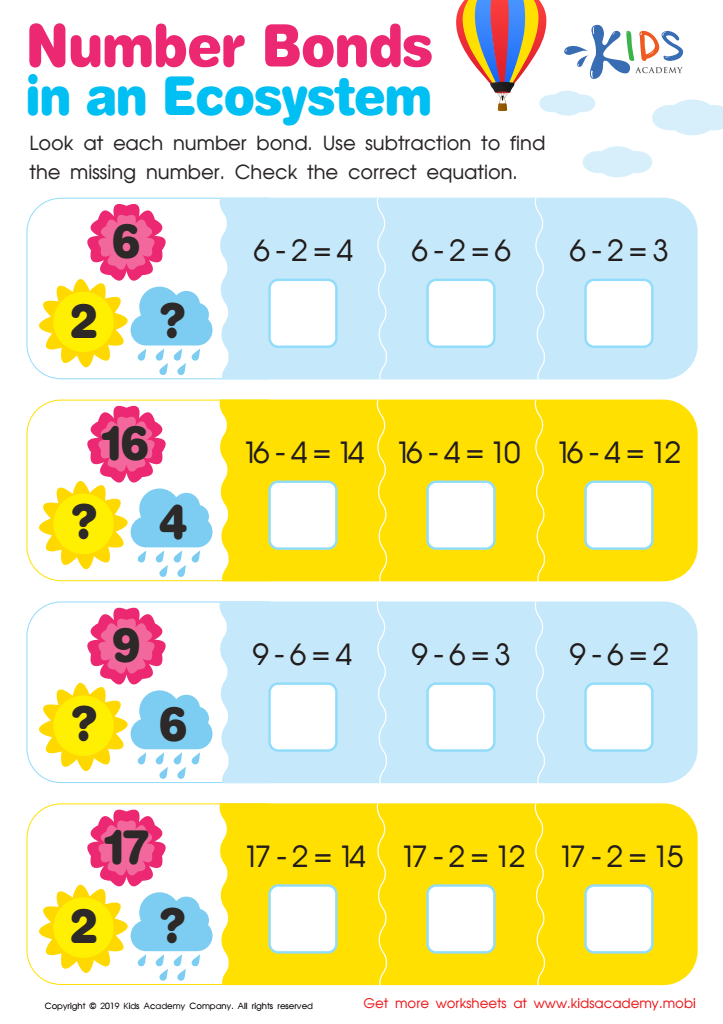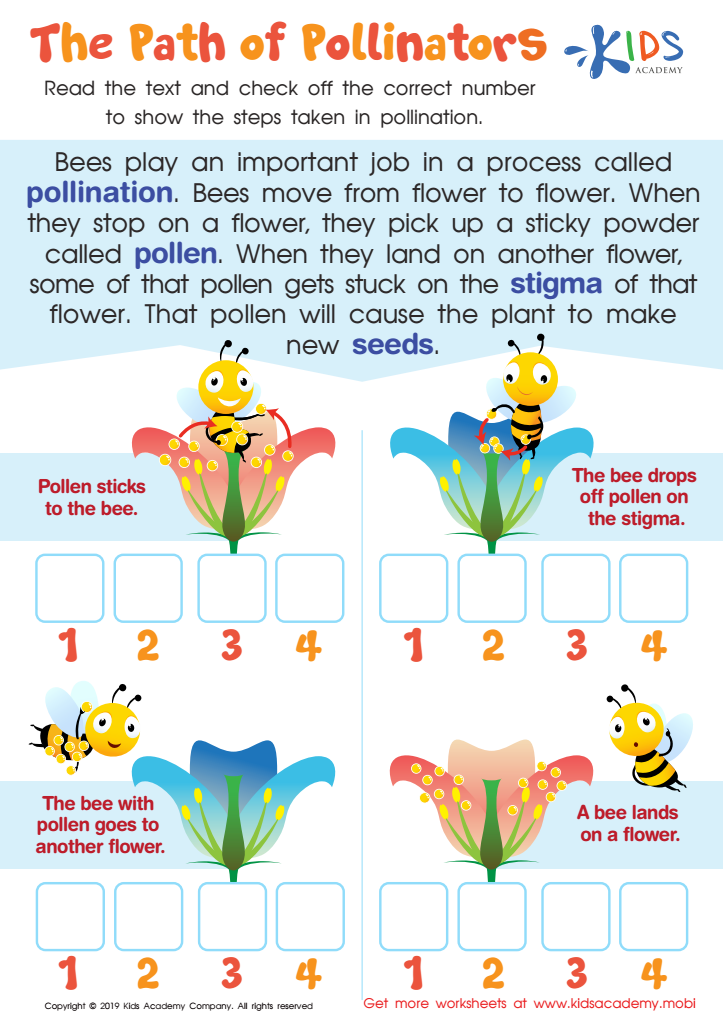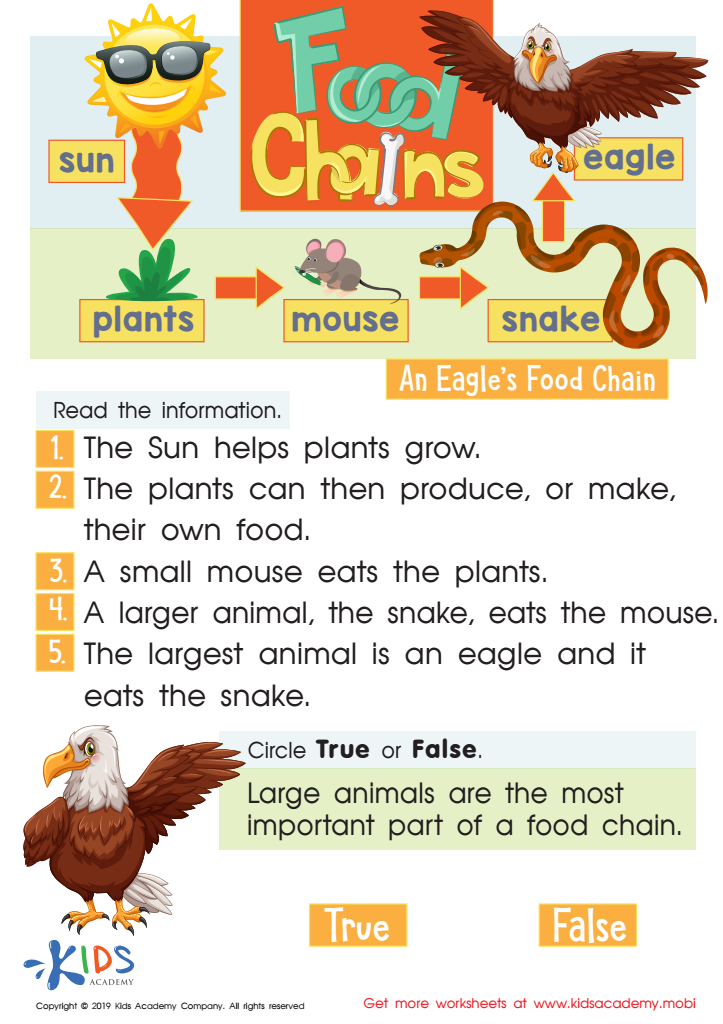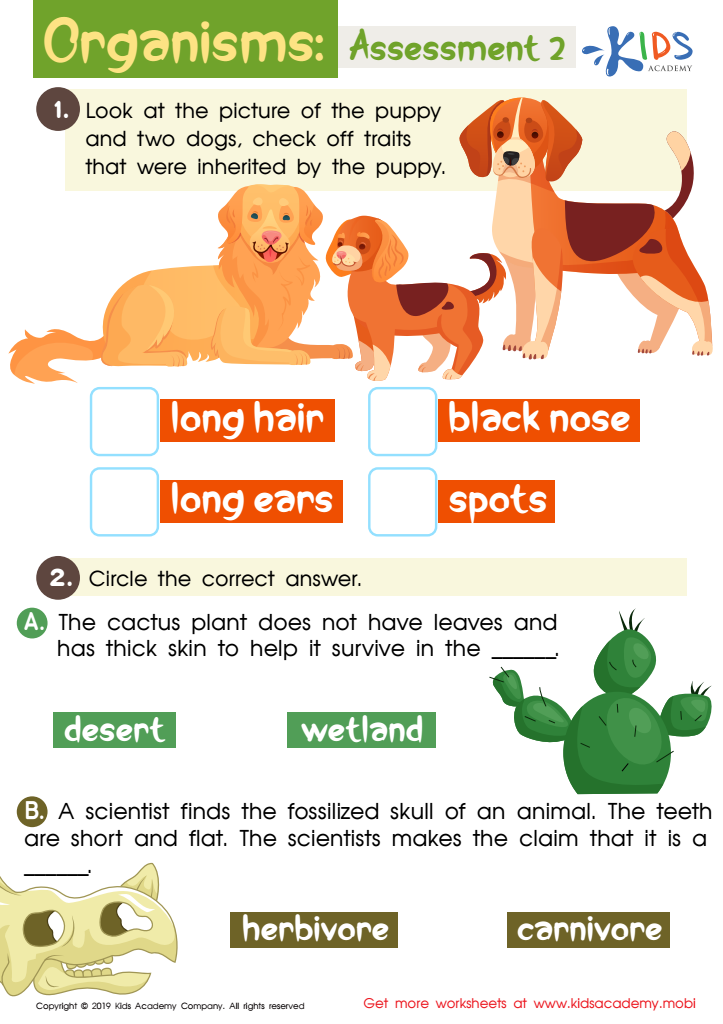Learning about ecosystems Worksheets for Ages 3-9
5 filtered results
-
From - To
Explore our engaging "Learning about Ecosystems Worksheets" designed for children aged 3 to 9! These interactive resources introduce young learners to the wonders of nature and wildlife, fostering curiosity about the environment. Each worksheet includes fun activities that cover various ecosystem concepts, promoting critical thinking and observation skills. From identifying plants and animals to understanding their habitats, children will gain a foundational knowledge of how all living things coexist. Perfect for homeschoolers and early education settings, these worksheets make learning enjoyable and hands-on. Download now and encourage your child to discover the importance of ecosystems in our world!


Pollinator Positions Worksheet


Number Bonds in an Ecosystem Worksheet


The Path of Pollinators Worksheet


Food Chains Worksheet


Organisms: Assessment 2 Worksheet
Parents and teachers should care about teaching young children about ecosystems because it lays the foundation for environmental awareness and stewardship. At ages 3-9, children are naturally curious and absorb information quickly. Introducing them to ecosystems fosters an understanding of the interconnectedness of living organisms and their environments. This knowledge helps children cultivate appreciation for biodiversity and empathy toward all living things.
Understanding ecosystems also promotes critical thinking skills as young learners observe and analyze how plants, animals, and humans interact within their surroundings. It encourages outdoor exploration, igniting a love for nature and science that can last a lifetime. Engaging children with lessons about ecosystems invites hands-on experiences, such as gardening or nature walks, which enhance their physical and emotional well-being.
Moreover, equipping children with ecological knowledge empowers them to become responsible citizens. Teaching them about issues like pollution, climate change, and conservation efforts can inspire advocacy from a young age. A solid grasp of ecosystems instills a sense of responsibility for the planet, fostering habits that contribute to a more sustainable future. Ultimately, by encouraging eco-literacy, we can guide the next generation in preserving the earth for years to come.
 Assign to My Students
Assign to My Students
















